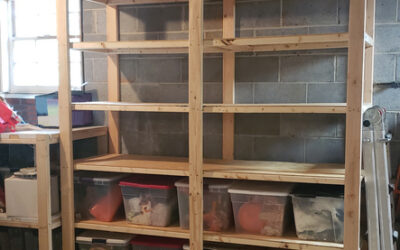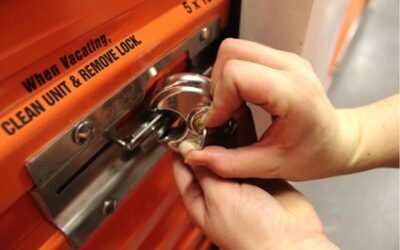With your dress clothes and leather valise collecting dust you might be wondering if you need them at all. Should you sell or store away your work stuff?
That’s the question for current remote workers. While it’s tempting to think you’ll never go back to the office, that might not be realistic. A survey from Slack found that while only 12% of knowledge workers say they see themselves back in an office full-time, that doesn’t mean they’ll be working exclusively from a home office either, as nearly three-quarters say they prefer a combination of office and remote work.
And yet no one knows what a return to work will eventually look like and what the new dress code of office layout will be. That might leave you wondering if you will eventually need those office clothes and desk accessories after all, or if you have a goldmine in your closet and among the items you brought home as you hurriedly packed up your desk way back in March.
You wouldn’t be alone. Reselling site thredUP has identified a “quarantine clean-out frenzy,” with 50% more people cleaning out their closets and a 31% increase in people browsing the site this spring, compared with pre-COVID.
“We’ve all been in purge mode since March, but we don’t know what the future holds for going back to work/into offices,” says Holly Blakey of Breathing Room Organization + Styling, which can lead to some tricky decisions. Here are some tips to help you make a sound decision on whether to sell or store your items.
1. Find Out When Your Company Will Go Back to Work.
Of course, none of us can see the future. (And let’s be honest, if we could, we would have run at the sight of 2020!) so you can’t know for sure what your company’s plans are. But most of us can make an educated guess about how likely we are to return—and when that might be. Stay in touch with the HR department to find out plans; many companies have already announced that their employees can work from home through 2021 or even later. You also can assess whether your company is moving to smaller offices, which could indicate fewer people in the office, and whether your team is one that can easily function remotely.
“You don’t want 2021 to roll around with everyone heading back to the office, but you not having any work clothes,” Blakey points out. “For now, create a ‘capsule’ section of work outfits (mostly tops) that you wear for Zoom calls and keep that section at the front of your closet.” Then everything else you don’t want to sell can be carefully packed and relocated to a basement, attic, garage or storage space to give you a little more room.
2. Make Sure You Like the Items Before You Keep Them.
“When working with clients and decluttering off-season items, I ask them to consider if they would reach for the item if the weather changed tomorrow,” says Michele Vig, organizer and owner of Neat Little Nest. “The same goes for work clothes you’ve stopped wearing due to COVID. Ask yourself if work changed tomorrow, would you grab it? If the answer is yes, then it’s a keeper. If the answer is no, it’s probably time to let it go.”
Also remember that we might be in this for the long haul so assess whether you still see yourself wearing an item after two to three years. Some pieces are classics for a reason, but many others are going to look dated or “trendy” (in a bad way) very quickly. If the item doesn’t have staying power, selling it will bring in some cash now that you can save for future purchases.
3. Decide If Now is the Time to Buy.
Whether you’re outfitting your current home office or looking ahead to the future, consider what equipment or accessories might make your office space more efficient and effective and see if someone else is selling them. They are probably happy to bargain for that second monitor that doesn’t fit in their home office but might be perfect for yours.
And use this same philosophy with clothes or shoes. If you’ve always had your eye on a designer bag or evening dress, this might be the time to get a great secondhand buy for a reasonable price. In fact, data from TheRealReal, which re-sells luxury items, found that first-time buyers of “high-value” investment pieces like handbags or watches are up 36%. If you spot a great piece at an unbeatable price, buy it now and store it safely for the future when we can resume parties, weddings and other social events.
4. If in Doubt, Don’t Throw it Out.
If you’ve recently cleaned out your office and brought home accessories, from lamps to whiteboards, you might be tempted to get rid of them if you don’t immediately see their utility. But there’s very little more maddening than spending hard-earned cash to replace something you sold or donated.
That’s why a storage space can be a worthwhile investment if you have special clothing pieces or work-related items that you love but don’t want cluttering up your living space. Box them up, label it and send it off to retrieve if and when you need it.




